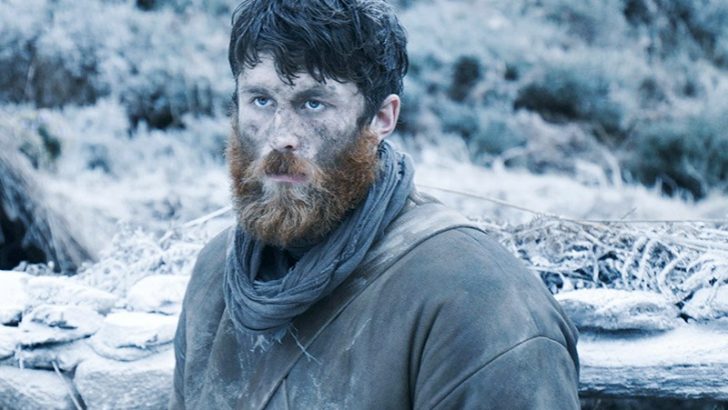Black 47 (15A)
Rambo meets Fionn Mac Cumhaill in this mesmerising drama from Lance Daly. I don’t think we’ve ever had a Celtic action hero before unless we count Braveheart. There’s an almost super-human one in this highly unusual film. It starts out as a kind of post-colonial history lesson about the horrors of the famine – and those who avoided its worst tragedies by “taking the King’s shilling”.
Feeney (James Frecheville) is one of these. He’s been fighting for the British in Afghanistan. Abandoning his post to re-unite with his family, he learns his mother has died and his brother has been hanged. The film chronicles the manner in which he seeks retribution for these deaths and all the wrongs perpetrated by Britain when our potato crop failed.
A better reference point for the film than Rambo would be the Clint Eastwood of Sergio Leone’s “spaghetti” westerns. Like The Man with No Name, Feeney is strong and silent. He erupts at the most unlikely places. He’s like an avenging angel of death.
Whatever else we may say about this grim-faced assassin, he kills with style. His executions mirror the crimes of his victims. Thus a hanging judge is hanged. A corn dealer is buried in corn. And so on.
This is a fascinating film. Shot in a kind of sub-Arctic white light, it has a grim foreboding about it. It combines elements of Revenge Tragedy and the Celtic Twilight.
Nine lives
The entire British army seems to be on Feeney’s trail but he has the proverbial nine lives of a cat. He eludes capture at every turn. Even when he falls into their clutches he has little trouble extricating himself.
This is all very far-fetched, needless to say. Feeney takes on the role of a self-styled one-man army. His is a David and Goliath-style struggle against John Bull’s tyranny.
In the latter stages of the film, his former Afghanistan colleague Hannah (Hugo Weaving) is co-opted by the British authorities to nab him. From now on it becomes Hannah’s story as much as Feeney’s.
Hannah’s loyalties shift towards the Irish here. I found this difficult to accept considering the ruthlessness he exhibits towards a freedom fighter in the film’s opening scene. If we view the scene in the context of the film as a whole, maybe we can see such ruthlessness emanating from a war he’s fighting inside himself.
Black 47 is a must-see film. It re-opens famine wounds but is to be commended for its unrelenting sense of tension. It documents a country decimated both by natural disaster and the fascism of a foreign regime.
It also has Stephen Rea like we’ve never seen him before. He’s a quirky translator playing both sides against the middle.
Much of the film is spoken in Gaelic. Some of the subtitles appear in the centre of the screen instead of at the bottom. This is just one more very unusual thing about it.


 Aubrey Malone
Aubrey Malone James Frecheville plays Feeney in Black 47
James Frecheville plays Feeney in Black 47 